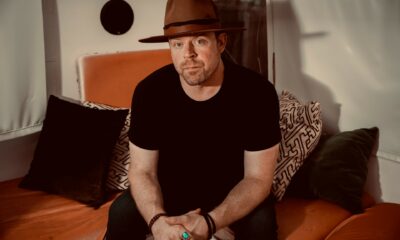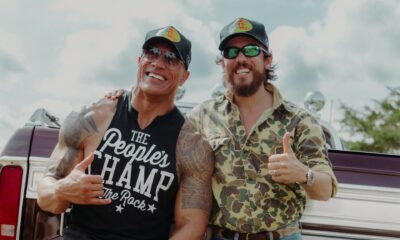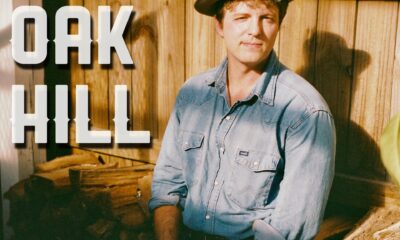Country
Dirt Reynolds Discusses Debut Album ‘Scalawag,’ Southern Christian Values, and Being a Troublemaker
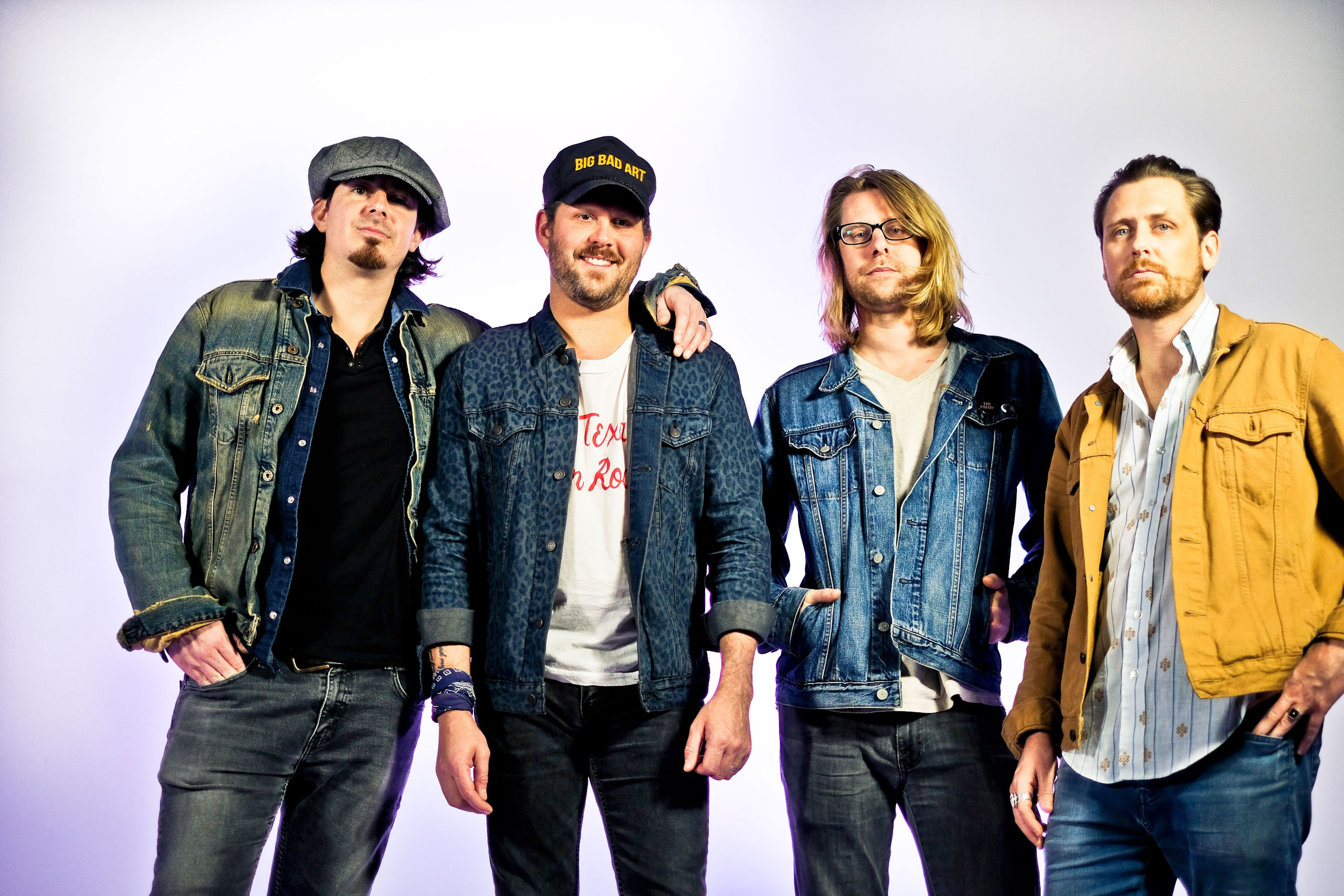
There is no denying that the American South is a complicated topic that can lead to some anxious conversations amongst different people. With decades of stereotypes doled out by the media, Hollywood, literature, and music, a real misunderstanding of the South has developed to the point where people have lost sight of the fact it is actually a region of extreme beauty and authenticity.
To help clear up some of these myths and confusion is Dirt Reynolds, the stage name of Louisiana native Chris Watts. The intent behind the recent creation of Dirt Reynolds was to both educate himself and help others understand the South for what it actually is, rather than some demonized or romanticized version of what people think. As a youngster, Watts caused his fair share of trouble but, eventually, got things in order when he pursued two separate college degrees in journalism and political science and started to take writing more seriously.
Watts has just started his musical ascension with the June release of his debut album, Scalawag. The recording explores his own southern identity and how it operates within modern culture, using universal themes, complex characters, and charged up guitars to illustrate the truth and the lies that the American South tells to itself and to the outside world. Produced at Greenland Studio in East Nashville, Scalawag will be officially released on vinyl on August 28th.
We recently spoke with Watts at length about the new record, creating Dirt Reynolds, his trouble-making past, and Christian values.
So, Scalawag has been officially out now for about one month. Since you can’t be out on the road right now, I’m curious as to what type of reaction you’ve received towards the album thus far?
Chris Watts: “Releasing the album during a global pandemic was a risk, but I’m glad we did. The response so far has blown away any expectations I had for it. People are spending more time at home now, so that’s definitely helped with streaming. The album’s also picked up some great press, which it may not have otherwise. And I’m beyond thankful for all of that, but I’ve also received some incredible feedback and support from songwriter friends here in East Nashville whom I have the utmost respect for, and that means the world to me. Friends from back home who’ve followed me from day one have reached out and expressed that certain songs mean something to them or make them feel a certain way, and that’s what’s most important to me. Not Spotify streams or playlists or followers. If you’re chasing that stuff and that’s all you care about, you’re probably in it for the wrong reasons. Making real human connections like that is why I do what I do, otherwise, I’d be wasting my time. If you’re doing it for the right reasons, I believe the other stuff will come in time.”
I can imagine that the last few weeks could be a very nerve-racking time in your life since it’s just the initial period after releasing your very first album to the world. How would you say you have dealt with it personally? Has it been an anxious time for you?
“Booze and partying. And I don’t mind saying that because this is an anxious time for everyone. A lot of folks in the U.S. are out of work and out of money. Some were never eligible for unemployment or it hasn’t gone through yet. Some are forced to work through the pandemic for a pay-cut. The government is bailing out churches and giant corporations while hard-working citizens don’t know how they’re going to pay their bills next month. It’s not right, and people should cope with this however they need to and not feel shamed for doing so. The sooner we stop demonizing each other and realize we’re all in this together, the better off we’ll be. Our industry will be one of the very last to come back, so we’ll have to start figuring out other ways to support ourselves. But people are resilient, and I do feel hopeful. That’s one of the big underlying themes on the record.”
It’s even worse having to release the album in the midst of a global health crisis. Was there any thought towards pushing the album’s release back?
“Absolutely. I was reluctant to release an album without being able to tour behind it, but we rolled the dice, and it’s paid off. I think art should be about taking risks, so since the inception of this record I’ve been trying to do the things that make me uncomfortable or scare the hell out of me. Nothing grows in the comfort zone, and all we’re guaranteed in this life is that one day we clock out. If you spend your whole shift playing it safe then you never truly lived a day, and that’s the biggest regret anyone should have when their time comes. Plus, an album should be a snapshot in time. The best part for me about releasing it now is being able to move on to the next thing.”
How would you characterize Scalawag and your sound to a new listener? How would you best describe the album to a new listener?
“I don’t think it’s our job to put labels on what we do because it doesn’t matter what we think about it. That’s the audience’s job, so I just say rock n’ roll. The press has called it everything from rock n’ roll to twangy alt-country to outlaw country.
Personally, I think it’s southern rock, but that term carries such negative connotations, which is dumb, because southern rock doesn’t have to be rednecks waving rebel flags playing cheesy blues. R.E.M., Drive-By Truckers, Alabama Shakes, My Morning Jacket, Black Crowes… all southern rock bands, and that’s some damn fine company if you ask me. Lynyrd Skynyrd is my favourite band, but they’re just as nuanced and misunderstood as the term southern rock and the south in general. But that’s a whole other story.
Scalawag is a rock album about southern identity, but at its heart it’s a singer-songwriter album with loud guitars because the song is what’s most important to me and the song always comes first. I wanted to make a rock record about the truth and the lies the south tells itself and others, and I felt the best way to do that was to write songs that reflect the beauty and conflict that is the true American South, not some Hollywood stereotype or romanticized pop country song. These songs are about small-town confinement and dead-end dreams, death, hope, hate, resilience, glory, working-class people, underdogs, people who are marginalized by society and often misunderstood. Characters I care deeply about. So I would describe it as a southerner unapologetically ripping off Bruce Springsteen.”
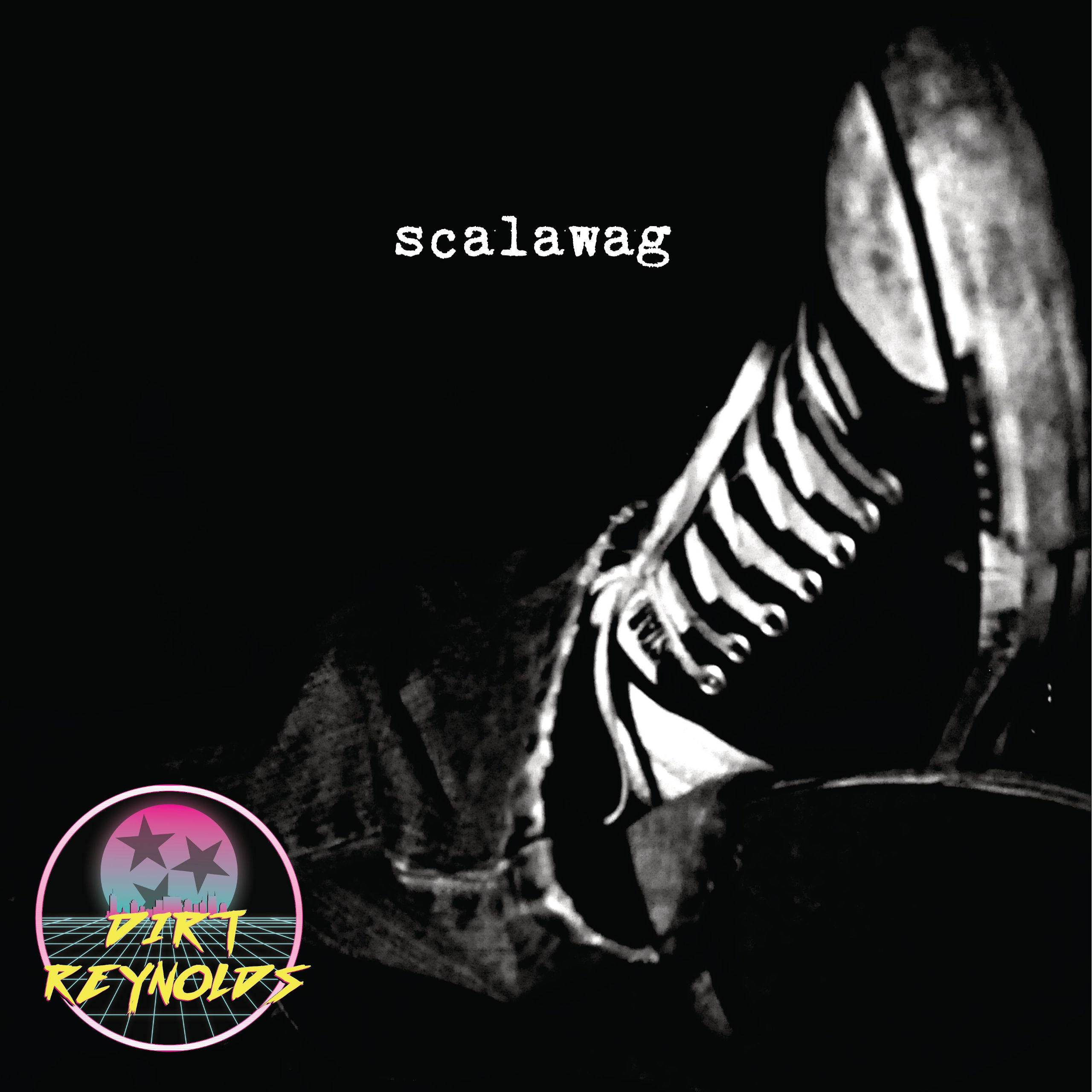
Artwork for ‘Scalawag’ by Dirt Reynolds
Now as an adult looking back, how would you characterize your childhood and your upbringing? Do you hold your Christian values in high regard, or have you left this part of your life in the past?
“In a lot of ways I had a great childhood. My parents loved me, provided for me, and I genuinely think they did the best they knew how. My mom was a teacher so she taught me the importance of reading and education (although I was an awful student). Her family is from Galliano, LA, an hour and a half south of New Orleans and about as far south as you can get, so I was able to experience culture at an early age. Her parents were shrimpers and still speak French to each other. Before I was old enough for a real job I worked summers on the shrimp boat. My dad is a forester from Mississippi and taught me about hard work and to take pride in everything I do, whether it’s scrubbing dumpsters and toilets or writing songs. He loved to fish and hunt and taught me to appreciate the beauty of nature and the outdoors. They also raised me on traditional country and gospel music and my first encounters with music were in the Southern Baptist church, even though everyone clapped on the 1 and 3.
I was brought up in the church every Sunday, Sunday night, and Wednesday until I left home, but I think modern day ‘Christian values’ go against everything Jesus preached to his disciples in the Bible. The Jesus I know preached love, compassion, empathy, social justice, and tolerance, and sadly we don’t associate those words with a lot of modern day Christians. It’s quite the opposite. Religion has become a PAC with a splash of bible. Politicians have exploited it by inciting fear. ‘Your values are in danger and we’re the only ones who can save you. Vote for me.’ And now we have Jesus camps to court children at an early age.
If you’re using religion to help the less fortunate through feeding and housing the homeless, mission trips, Habitat For Humanity, etc…, then I think it can be a great thing. If you’re using it to push political agendas, raise money for politicians or political causes, incite fear, line your own pockets, or cherry pick bible verses to fit your worldview, then it becomes dangerous. I think Jesus would be appalled today at what some folks are doing ‘in his name.’ So the only problem I have with Christianity is most Christians.”
Part of the motivation behind the creation of Dirt Reynolds was to help yourself and others better understand the south and try to move away from the typical stereotypes that people have labeled on southerners. What’s the major point that you’d like to get across to listeners about the south and what it’s really like?
“I love The South, but sometimes it breaks my heart (isn’t that the nature of love?). We have a lot to be proud of, music, food, film, art, literature, sports, culture, some of the most beautiful scenery, larger-than-life characters that our best screenwriters and authors even couldn’t begin to write. Life goes by at a slower pace down here, so we have more time for our imaginations to wonder. It’s a literal hotbed of creativity.
We also have a shameful and oppressive past that continues to show its ugly head today. We were taught the Civil War was about state rights and the Confederate battle flag is merely a celebration of heritage, all while singing praise to a Jesus who ‘loves all the little children of the world’ and reciting a pledge of allegiance that concludes with the words ‘liberty and justice for all.’ Believe me, the irony is not lost on a lot of us.
There are good people here. Loving, compassionate people. We recognize the Civil War was about states’ rights to own slaves, and the Confederate battle flag is about heritage, a heritage of hate. We’re not all illiterate, inbred, racist, redneck, or whatever other stereotype you may have, quite the contrary. When you make such broad generalizations about such a large group of diverse cultures, you’re the one that ends up looking like a jackass. Us southerners still have a lot of work to do, but the stereotypes and cultural elitism from outsiders are detrimental to the progress we’ve already made.”
How far back do the origins of some of the songs on Scalawag go? Were some of them written a while back?
“Oh yeah. ‘Cenla,’ ‘Fireworks Over Buhlow,’ and ‘Empty Beds, Empty Bottles’ were some of the first songs I ever wrote. They didn’t necessarily fit our vision for the record, but I believe they’re good songs and I didn’t want to leave them behind, so we re-imagined them. ‘God’s Own Truth,’ ‘I Know What It Means,’ and ‘Homecoming Show’ were written not long after I moved to Nashville.
The most recent songs were co-writes with my friend Ben de la Cour. We knew each other back in New Orleans. He’s a heathen degenerate like myself, so we ran in the same circles. He moved to Nashville about a month before I did then convinced me to make the move. Ben and I wrote ‘Basin Lounge’ and ‘The Day David Duke Came To Destrehan’ together. We were mostly just trying to make each other laugh and finished both of those in a few hours. He also helped me finish ‘The Boy’s Gotta Go,’ which is my favourite thing I’ve ever written and recorded. I believe Ben is one of the best at what he does, and he’s got a phenomenal new album out called Shadow Land. Everyone reading this should check it out.
My buddy Joe Lekkas owns Greenland Studio where we recorded Scalawag. He played bass on the record and helped engineer and produce. Joe knew what my vision was, but had the foresight to revisit some of those older tunes, so that was actually his idea. When we put them all together there was clear cohesion and it just made sense. I accidentally recorded a concept album. Damn it!”
How challenging would you say it was to put this record together? Was it more difficult because it’s your debut? Or perhaps that made it easier because you didn’t have to live up to anyone’s expectations?
“Challenging myself and forgetting about my own expectations ultimately made it easy. My ethos behind this project from day one was ‘do what scares you.’ That started with the songwriting but transferred over to the studio. It was Joe’s idea for me to do all the guitars on the record, and that scared the hell out of me. I played guitar long before I ever thought about writing songs or singing. I wasn’t allowed to watch MTV as a kid, so I’d wait until my parents were asleep, boombox tape recorder in hand. I would stay up all night waiting for a song I liked then I’d record it through the TV speaker (sorry mom). Every day I’d play my guitar along with those tapes. AC/DC, Guns N Roses, Metallica, Nirvana, etc…, play, stop, rewind, piecing songs and guitar solos together literally one note at a time. It was always a hobby for me, but I started focusing more on singing and songwriting when I got older.
I was scared to play on the album because the tendency in Nashville is to hire someone better than you to do it. But I feel like the music loses some soul in those situations. There’s no magic there. There’s always going to be somebody better than you, so I think the idea is to work harder than them and focus on making whatever you do work for you. If it’s sincere then people will respond to it, and that’s more important than making perfect music. So I played guitar, Joe played bass, and our good friend Erin Nelson was on drums. We had friends stopping by and sitting in. There was no time schedule, so everything was relaxed. We had time to experiment and make happy mistakes and let the songs evolve, and that’s where I think the real magic happens.”
https://www.youtube.com/watch?v=uhKW97UPzOU
For a young man, you’ve lived a very interesting and eventful life. You’ve both been stabbed in a bar and shot in the New Orleans Superdome during the aftermath of Hurricane Katrina while you were a member of the state National Guard. To lend some levity to the situation, would you say being stabbed or shot was more painful?
“I was actually stabbed OUTSIDE a bar! I was attending college in Nathcitoches, LA, home of Steel Magnolias, Natchitoches Meat Pies, and the Northwestern State University Demons. There was a honky tonk dance club way out in the country called The Bedrock. When you got tired of fighting kids at the college bars and wanted to step your game up, this is where you went. Constant bloodbath. You could buy speed, Ecstasy, Xanax, and pain pills from behind the bar. Every Thursday night they’d set up a boxing ring on the dance floor and have tough man competitions. No weight classes or anything like that, you’d just show up and box all night until you lost. Winner usually took home a few hundred bucks and I damn near funded a semester of college doing it.
One night after the fights I punched a guy by the door who had been messing with one of my friends all night. It instantly turned into a giant brawl and spilled out the door into the parking lot. All of a sudden I felt a sharp pain right on my shinbone. I looked down and saw a bunch of blood and something sharp and shiny. Before I could process any of it a gunshot went off from the bottom of the pile and everyone scattered like cockroaches. Everyone but the guy laid out on the gravel with a bullet hole in his ear. We didn’t stick around to find out whose gun it was. My buddy/guy on the couch Dayne loaded me up in his truck and got us out of there. So if you bring fists to a knife and gun fight, make sure you bring the guy on the couch too.
I eventually dropped out of college and got into a lot of trouble with the law, the most serious offense being felony battery on a police officer. The DA told me to join the army or go to jail, so at 19 years old I enlisted in the Louisiana National Guard. September 1st, 2005, I was in the Louisiana Superdome on Katrina duty for the National Guard staring at the floor through a hole in my leg. I had been shot with an M16 machine gun after a civilian jumped out at another guardsman and went for his rifle. The M16 discharged in the struggle and caught me in the leg. It was almost pitch dark. I just remember a flash and knowing I had been shot. My leg gave out and I fell into the flood water. Sgt. Darrell ‘Big D’ Williams pulled me out and told me he was going to find help. Big D recently passed away from COVID-19, and if his family’s reading this I want them to know that I’ve been thinking about them. Big D was a good soldier and a hell of a guy, one of those people you always wanted to be around.
The bullet went straight through my right thigh about half an inch from my femoral artery. I laid there for about 45 minutes until some Air Force guys helped me up some stairs. Then I felt it. A constant burn, like someone holding a cigarette lighter to your leg. They pumped me full of morphine and cleaned me up real good and sent me to Baton Rouge General Hospital on a Blackhawk helicopter, where I talked the medic into giving me way more morphine than the allotted amount. The next day I came to and my dad was with me in the room. The doctor walked in and said it was time to change the gauze out, and it was going to hurt. My entire gunshot wound was packed full of gauze, and he started ripping it out of me like a magician pulling a handkerchief out of his hat. It hurt so bad my dad had to peel my hands away from the hospital bed rails. And they did it twice a day, first thing every morning. I couldn’t sleep at night because I had nightmares about it, and all the pain meds they could give me didn’t do a damn thing. On a scale from 1 to 10 with changing the gauze being 10, getting stabbed and shot was like a 3 and 4.”
I realize it’s hard to say right now, but what are some of your upcoming plans with regards to your music? Have you been doing any writing with this time away from the road?
“I’ve spent most of my time promoting the record. We do have a vinyl release coming up on August 28th. We’re hoping to get a few more singles and videos out before then. The next step is to get together with my band and start writing collectively. The band formed in late 2019, so we were derailed by quarantine just as we were getting started. They’re a super talented group of folks, and the chemistry is definitely there, so I’m stoked about it.
I think the important thing now is to continue to work and put out new music. We have the technology now to release music to the entire world whenever we want, so why not? I’ve got a home recording setup now and I’ve been using MIDI and drum loops to help with writing since the band can’t rehearse. I just want to continue to challenge myself artistically and do the things I’ve been afraid to do in the past. I would like to go in a more rock direction, but the next record could be all analog synths and drum machines. I want to keep my options open and explore as much as I can right now. Most importantly I want to keep having fun.”
-

 Music6 days ago
Music6 days agoTake That (w/ Olly Murs) Kick Off Four-Night Leeds Stint with Hit-Laden Spectacular [Photos]
-

 Alternative/Rock2 hours ago
Alternative/Rock2 hours agoThe V13 Fix #011 w/ Microwave, Full Of Hell, Cold Years and more
-

 Alternative/Rock1 week ago
Alternative/Rock1 week agoThe V13 Fix #010 w/ High on Fire, NOFX, My Dying Bride and more
-

 Alternative/Rock2 weeks ago
Alternative/Rock2 weeks agoA Rejuvenated Dream State are ‘Still Dreaming’ as They Bounce Into Manchester YES [Photos]
-

 Features6 days ago
Features6 days agoTour Diary: Gen & The Degenerates Party Their Way Across America
-

 Culture1 week ago
Culture1 week agoDan Carter & George Miller Chat Foodinati Live, Heavy Metal Charities and Pre-Gig Meals
-

 Music1 week ago
Music1 week agoReclusive Producer Stumbleine Premieres Beat-Driven New Single “Cinderhaze”
-
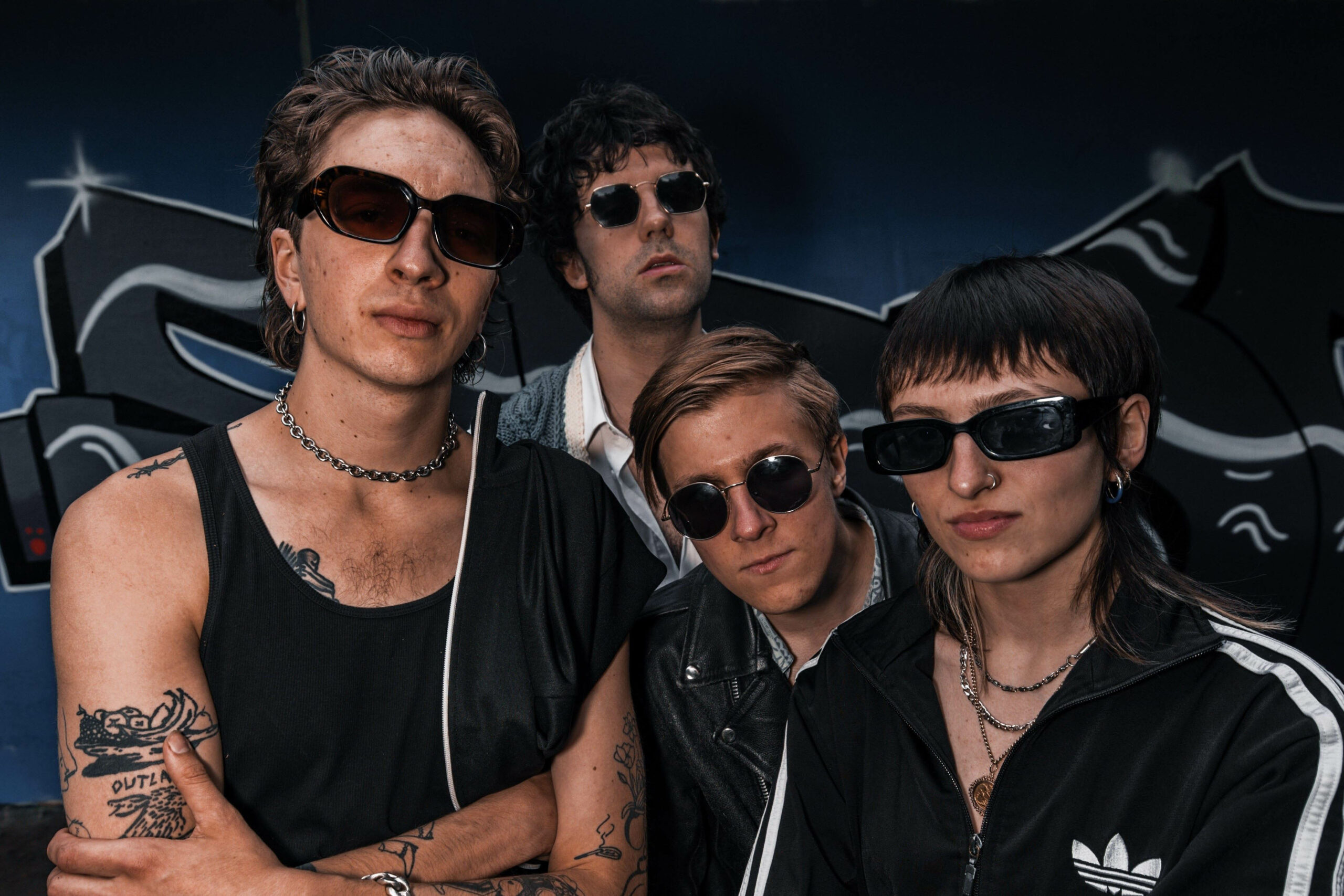
 Indie2 hours ago
Indie2 hours agoDeadset Premiere Music Video for Addiction-Inspired “Heavy Eyes” Single



